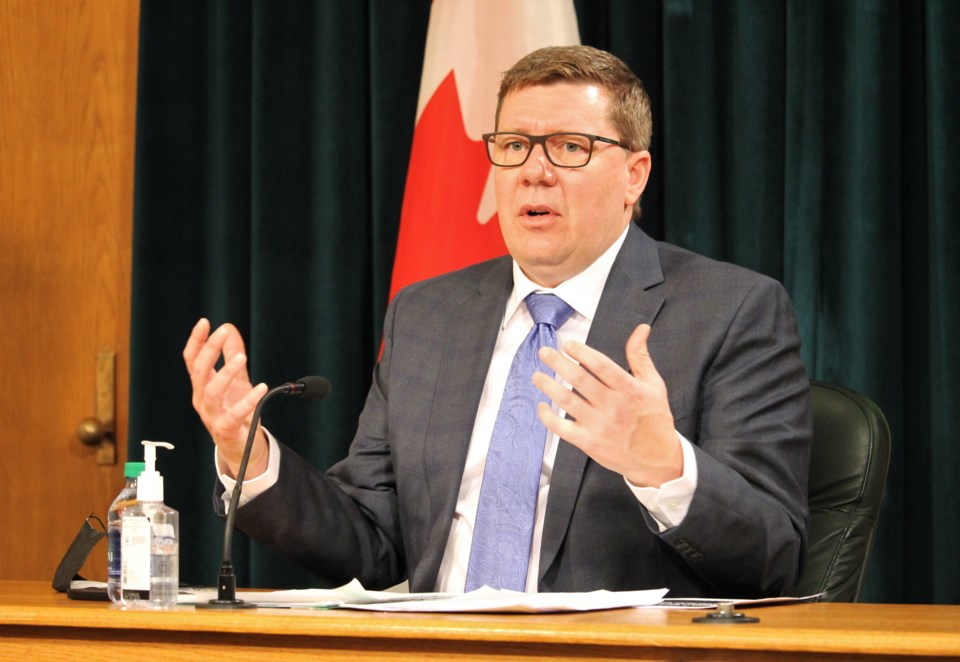REGINA — Saskatchewan has become the first province in Canada to lift all COVID-19 restrictions as its transitions to treating the virus like a common respiratory illness. The Saskatchewan Party government on Monday removed its two remaining pandemic health orders, which included mandatory masking in indoor public places and a requirement to self-isolate for five days if positive for the infection. The province scrapped its vaccine passports on Feb. 14. Dr. Saqib Shahab, chief medical health officer, told The Canadian Press residents should be optimistic, but added that people who have not had a vaccine booster shot should get one. "Booster shots are extremely protective against hospitalizations," Shahab said. "The best thing we can do for ourselves, and reduce pressure in the health-care system, is to get boosted." About half of Saskatchewan adults have received their booster shot. While health orders have lifted, the virus remains in communities throughout the province despite the wave fuelled by the Omicron variant peaking one to two weeks ago, said Shahab. He estimates that about 20 per cent of the population was exposed to COVID-19 during the Omicron wave — about one out of every four households. He estimates another 30 to 50 per cent of the population could be exposed over the next few weeks and months. The latest data from the Ministry of Health shows COVID-19 hospitalizations have started to decline after peaking the week before last, which Shahab said was a reassuring trend. As of Wednesday, there were 372 people in hospital with the infection, including 27 in intensive care. The province reported 37 new deaths between Feb. 13 and Feb. 19 and a weekly test positivity rate of 14.4 per cent. Shahab said there is the possibility of a resurgence now that restrictions have been lifted, but he emphasized that will depend on the rate of booster shots and the presence of the Omicron BA. 2 subvariant — which is more transmissible but may not be more severe. Results from PCR tests done in labs indicate about five to seven per cent of people have been positive for the subvariant, he said, but added it's not a level of concern at this time. Shahab is encouraging people to stick to what they have learned and be considerate of those who are at high-risk. The province prefers to protect people through vaccinations and treatment with antiviral drugs instead of broad public health measures that affect mental health and the economy, he said. "At least for the short term, (we're) not relying so much on mandatory measures, but more on getting boosted, staying home if ill, self-testing if you have concerns or are gathering with those who are at high-risk," Shahab said. "Those things are going to be more important for the next few weeks and months." This report by The Canadian Press was first published Feb. 28, 2022.
Mickey Djuric, The Canadian Press



